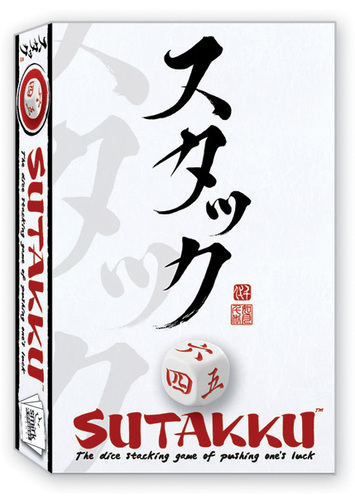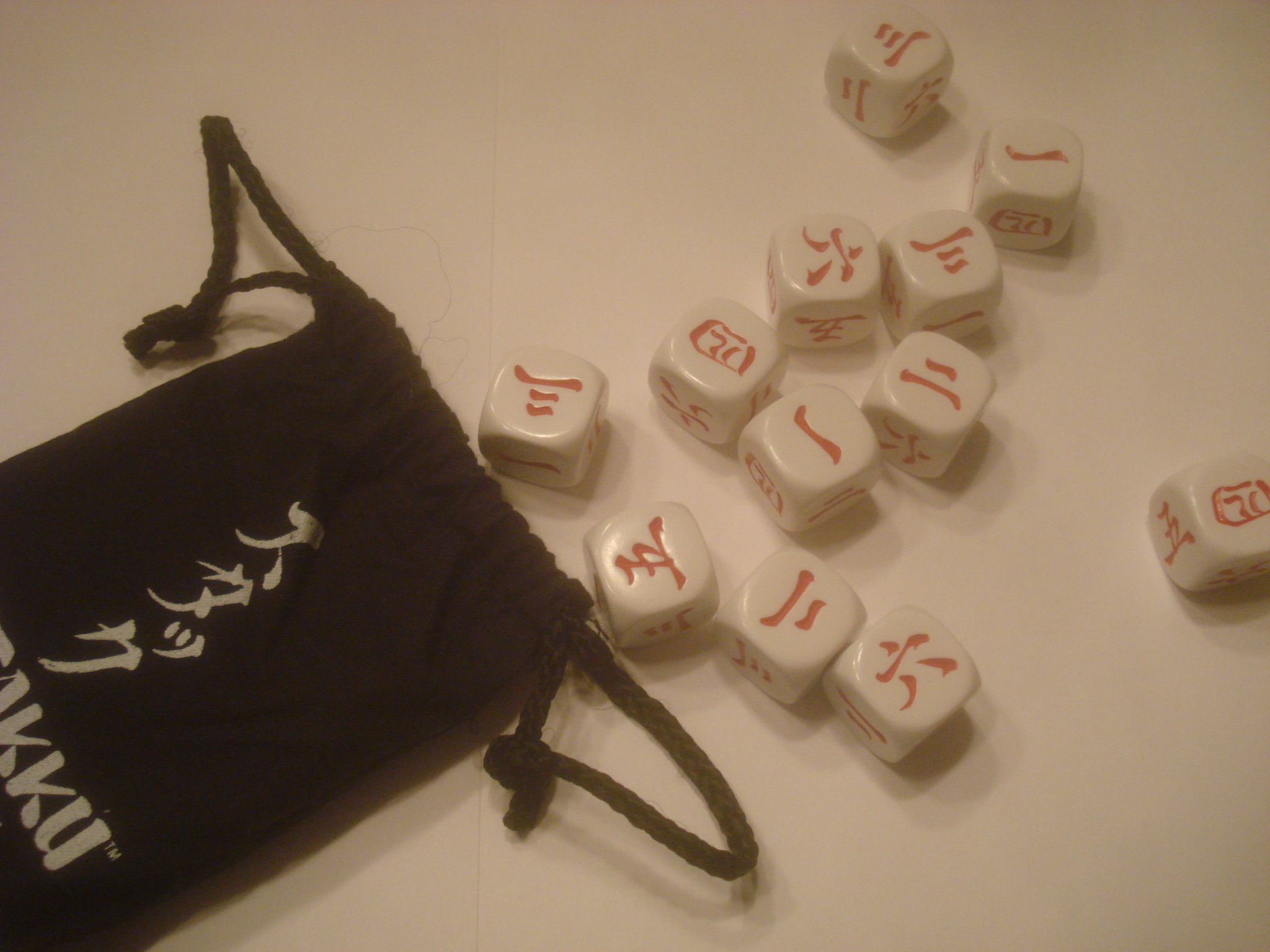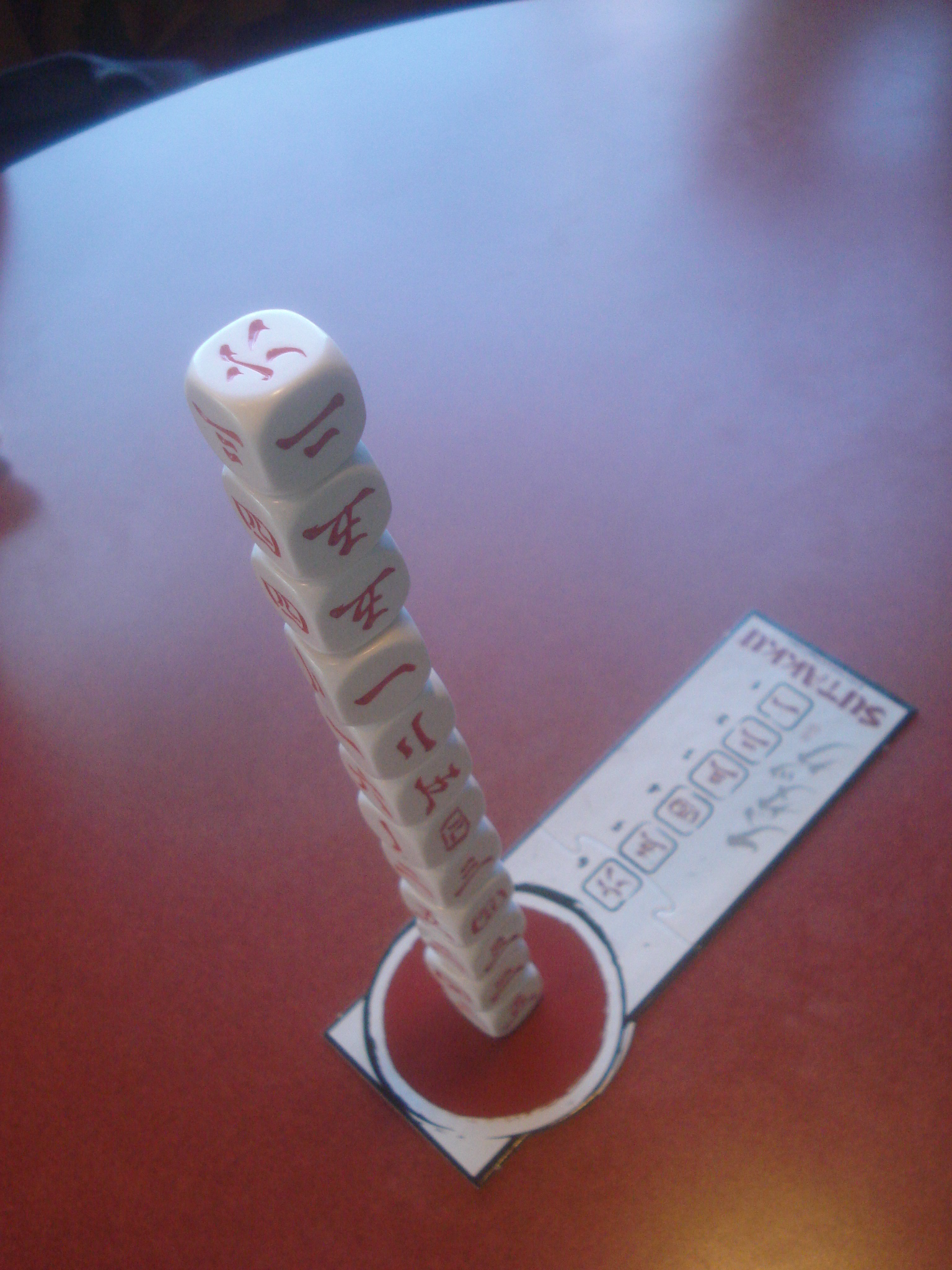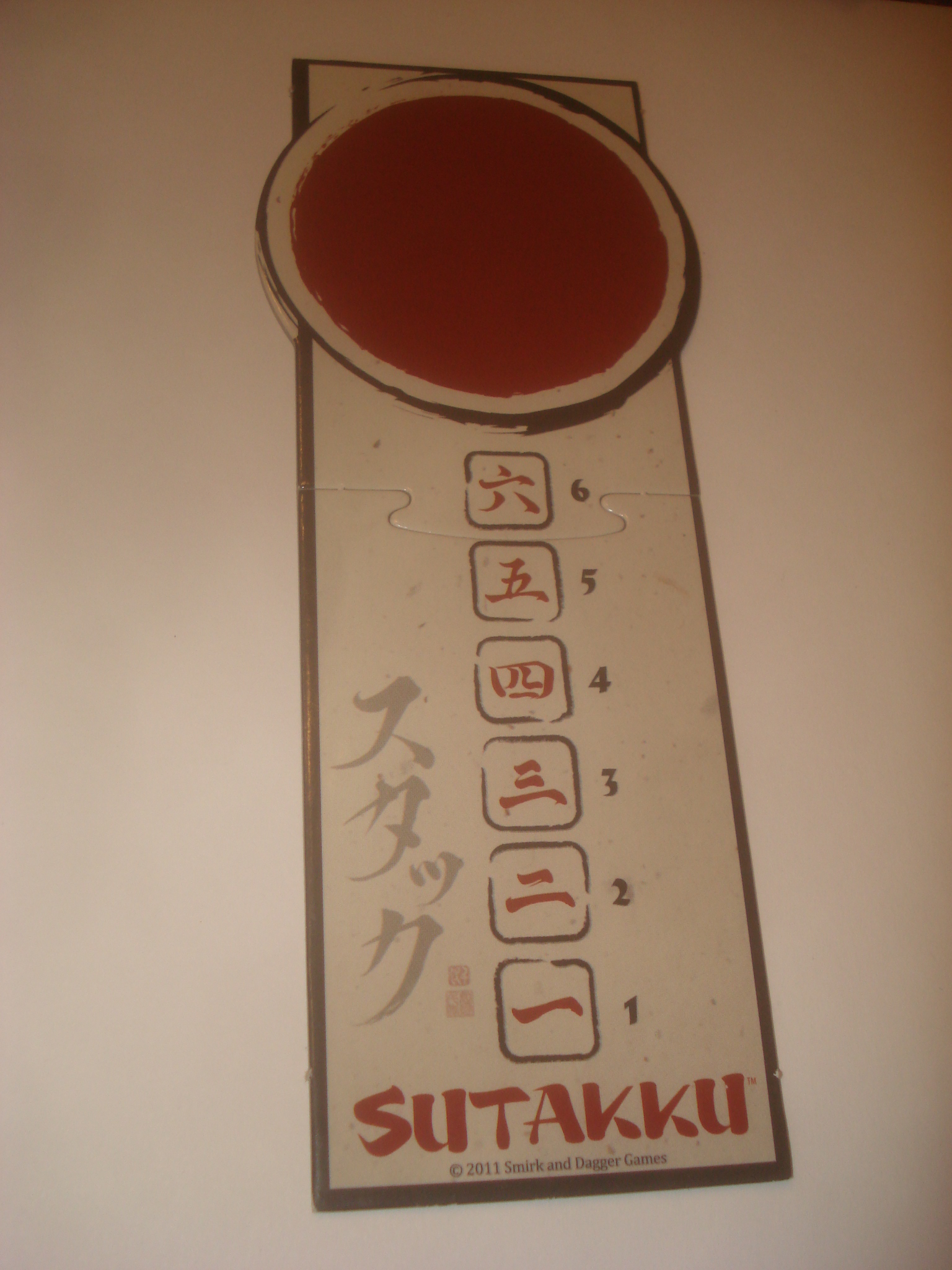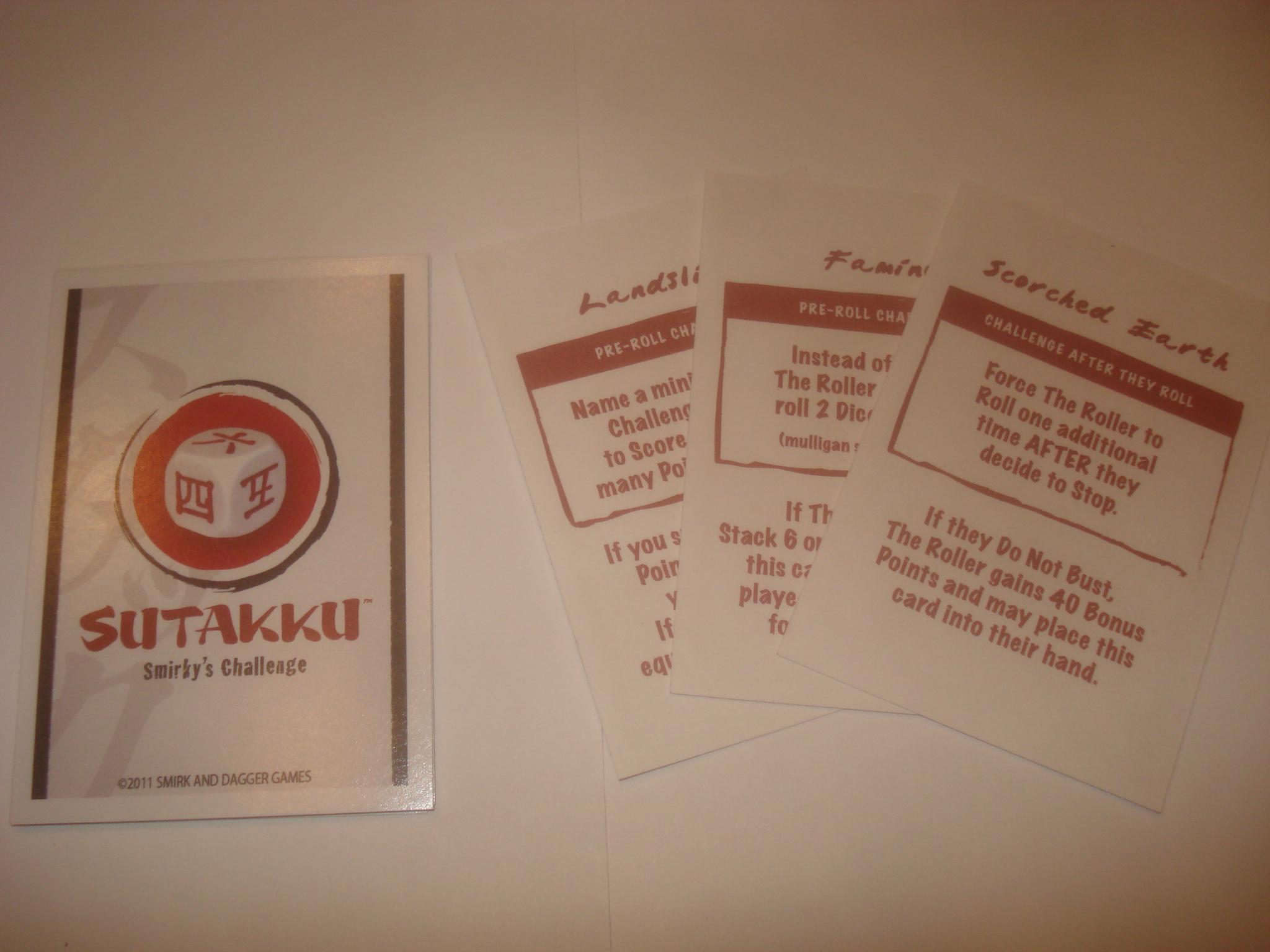| Publisher | Smirk & Dagger Games |
| Design Credits | Curt Covert, Justin Brunetto |
| Art Credits | Chiyo Nagahara, Michael Murphy, Curt Covert, Carolyn Taylor |
| Game Contents | 12 specialty dice, stacking board, scorepad, 11 Smirky’s Challenge bonus cards, cloth bag, rules |
| Guidelines | Japanese, stylized, back-stabbing press-your-luck dice game |
| MSRP | $14.95 |
| Reviewer | Andy Vetromile |
Aesop held one should not be a dog with two bones . . . rather, be happy with what you have. Apparently every culture has its own take on this ages-old story, and Smirk & Dagger Games capitalizes on a Japanese version in their release Sutakku. Here it’s based on the cautionary tale of a stonecutter who was never quite happy even as his lot in life was improved by the mountain spirit. Just as different civilizations share this story, so, too, does this game now contribute its voice in a burgeoning field of press-your-luck games.
The object is to have the most points by the end of five rounds of stacking dice.
Any number of players can play. (You can play it solitaire, just to see if you can beat your personal best, and if you don’t mind the increased wait time there’s theoretically no upper limit save the size of your dining room table.) Provided with 12 six-sided dice, a player throws three at a time on his turn, generating numbers between one and six. The roller keeps two – and only two – of the dice, hopefully starting with low numbers and stacking higher numbers on top of them.
He can keep rolling to increase his score, but here’s where the press-your-luck element enters the fray: If he can’t roll two results equal to or higher than what he already stacked, the player busts and gets nothing for the round. If he knows when to leave well enough alone, he calls it quits and gets points equal to the number of dice stacked times the highest number he placed. For example, if he didn’t dare roll once he stacked a 4 and that 4 sits atop a five-die tower, he scores 20 points. It’s a straightforward system so there are a few tweaks built in to change things up a little. If the three dice generate a pair; the pair is high; and all the dice are “legal,” you can place all three instead of choosing two. Thus two 4s and a 3 can all stack so long as the previously piled dice top out at 3. Triples also stack, and everyone gets one mulligan per round if the dice results displease them. There are additional opportunities for bonus points and rolls when the dice start hitting the high numbers, to tempt those consumed by hubris. After everyone’s had the dice five times, the highest score wins.
The components are as simple as the game, but this no-fuss approach works well. The dice are large, ¾” items that use fanciful Japanese characters instead of numerals. The designs are simple and the stacking board – a mounted cardboard circle for stacking the dice, with the Japanese character/number values listed along its length – is Spartan and functional. The box also includes a small cloth drawstring bag and a 25-page scorepad (roughly; the review copy pad had 26 leaves) designed to record stats for five players. (Scrap paper works just as well, plus there’s a photocopy panel on the back of the rules.)
Gaming markets have seen a small glut of push-your-luck games, using dice particularly, over the last couple of years, so distinguishing oneself in this crowded arena is a task made harder every month. Sutakku makes sure to add enough variety players aren’t always left throwing dice and hoping – they get to make a few decisions and exercise a few powers. And this being a release from Smirk & Dagger Games, they don’t send anyone to the table without the option of making opponents’ lives miserable. Enter the Smirky’s Challenge cards that can jerk around enemies or improve one’s own score. For example, one card demands the current player play a 6 on his stack while another demands he roll and stack a double at some point. These can force the roller to bust even when he’s successful, but if he pulls it off he’s rewarded with bonus points.
Even without the cards artificially inflating the danger level players find why Vegas does such robust business on games of chance. The very real, giddy thrill of deciding whether to push forward, even (especially?) when one already has a good score to post can be overwhelming, and Sutakku adds just enough variation, the right number of lifesavers and even breaks, at each level of play to keep players thinking, “Well, so long as I haven’t used that mulligan yet, how bad can another roll be?”
And when you find out the tragic answer to that question, there’s always another round to be played.
